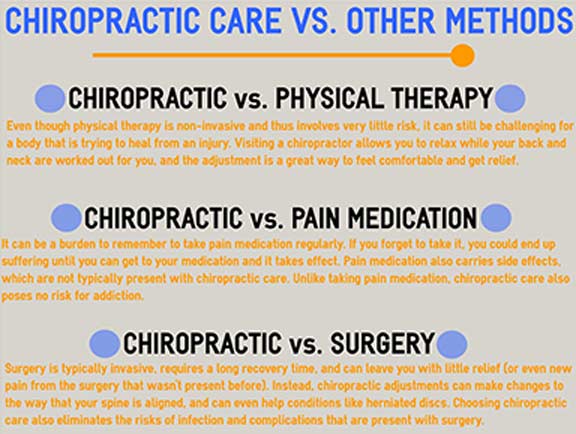Simply When You Assume Relief Is Near, Soft Tissue Treatment Exposes Its Uneasy Realities-- Find Why The Process Can Be Unpleasant Yet Valuable
Simply When You Assume Relief Is Near, Soft Tissue Treatment Exposes Its Uneasy Realities-- Find Why The Process Can Be Unpleasant Yet Valuable
Blog Article
Authored By-Holman Feddersen
When you go through soft Tissue treatment, you could discover it surprisingly awkward. This pain occurs as stress is put on tense muscle mass and broken tissues, triggering your discomfort receptors. While it can feel traumatic in the minute, there's a reason behind this experience. Comprehending what takes place in your body during these therapies can aid you appreciate the procedure. So, what exactly is taking does getting a massage release toxins under the surface?
The Physiology of Pain During Soft Tissue Treatment
When you undertake soft Tissue therapy, your body's feedback to pain is a complicated interaction of physical processes. As the specialist applies pressure, your body activates discomfort receptors, sending out signals to your mind. This causes the release of natural chemicals, such as compound P and glutamate, which enhance the experience of discomfort.
Your muscular tissues might likewise tighten in action, more making complex the experience. On top of that, your body may release endorphins, natural painkillers that can assist ease some discomfort.
The interaction in between these procedures can create an one-of-a-kind experience for every individual. Understanding this physiological response helps you navigate the sensations during therapy, enabling you to value the balance between pain and the possibility for healing advantages.
The Role of Discomfort in the Recovery Refine
Although discomfort throughout soft Tissue treatment can feel overwhelming, it plays an essential role in the recovery procedure. When you experience discomfort, your body is indicating that it's functioning to fix broken cells. This response helps enhance blood flow to the afflicted location, delivering important nutrients and oxygen needed for healing.
In addition, pain can advertise the release of endorphins, your body's natural painkillers, producing a sense of alleviation post-treatment. Accepting this discomfort can assist you recognize your body's restrictions and motivate you to deal with underlying problems.
While it's unpleasant now, this process is crucial for long-lasting recovery and boosted feature. Recognizing discomfort as an essential part of healing can encourage you to stay dedicated to your therapy.
Tips for Managing Pain Throughout and After Therapy
Handling discomfort throughout and after soft Tissue treatment can substantially boost your total experience and recovery.
To start, communicate freely with your specialist regarding your discomfort levels; they can readjust techniques appropriately. Utilizing deep breathing strategies can additionally help you relax and ease pain.
Consider applying ice to the cured location post-session to reduce swelling and numb discomfort. Staying moisturized help in the recuperation procedure, so consume plenty of water.
Gentle extending and light movement after therapy can advertise blood circulation and convenience rigidity. Lastly, ensure you obtain sufficient remainder to permit your body to heal.
Implementing these tips can make your soft Tissue treatment a lot more manageable and enjoyable.
Verdict
Finally, while soft Tissue treatment can be uncomfortable, it's vital to acknowledge that this discomfort plays a crucial duty in your healing journey. By recognizing visit the following website at play, you can come close to the therapy with a more favorable way of thinking. mld drainage in mind, the initial pain frequently gives way to alleviation as your body releases endorphins. Welcome the process, and don't be reluctant to use the ideas for taking care of discomfort to improve your experience and recuperation.
